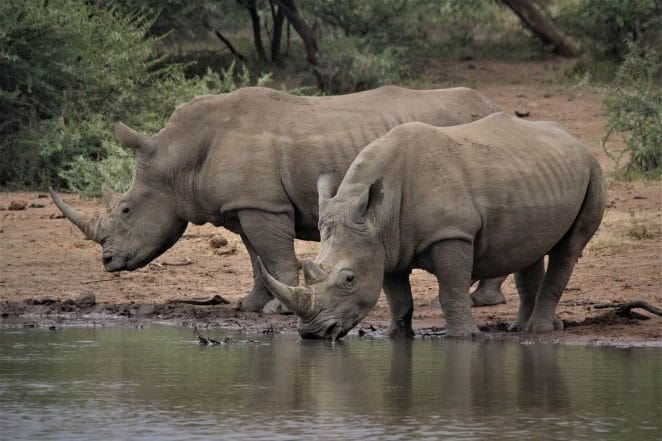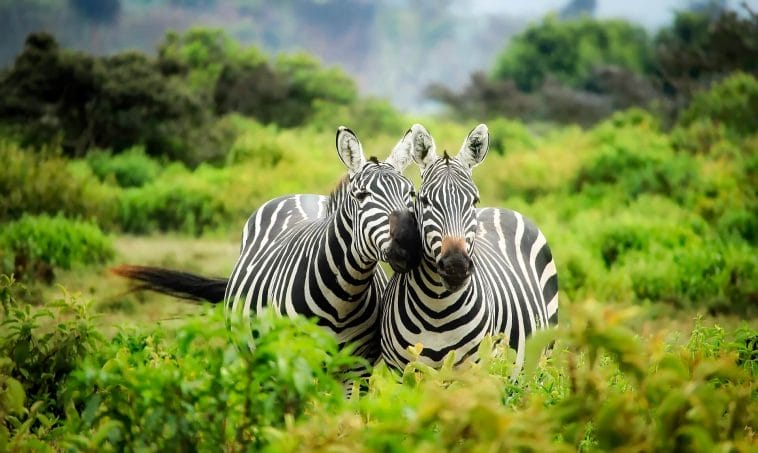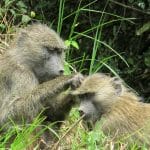10 things not do on your visit to Kenya
Growing up in the 90s as a kid in sussex I came to see a lot of “I was were” branding on all sorts of places. You would find it in school toilets, where scribbled in among other rather nasty messages, was always a “so-and-so was here.” Once during orienteering I saw a tree that had been branded, Sam and Ron forever.
Coming up in a culture like that, it is interesting that when you visit Kenya or come here on safari, you are supposed to do the opposite. You are supposed to make sure no one knows you was here. Leave the environment un-spoilt as you found it.
Here is a brief list compiled to guide you on what is acceptable and what is not on your visit to Kenya:
01. Litter less I started with this as it is so obvious. Or is it. Let me tell you a story… Lake Bogoria used to have an interactive element to the visits there. You were allowed to carry eggs to boil in one of the geezers. You are no longer allowed to do this. Why? Of course, once the eggs were boiled, what did tourists do? They threw all their shells on the floor as they salted their eggs and ate them.
The moral of this story is this; if the visitors boiled their eggs ate them and remembered to carry the shells away with them, then, you too when you visited would be allowed to boil eggs for your breakfast in the hot springs.
So when you visit Kenya, please look out for obvious and not so obvious ways of ensuring you leave a very small foot-print of your visit.
02. Medicine man to none Sometimes we we get visitors who believe the health of everyone, especially children, they come across is their personal cross to bare. I am here to tell you that it is not your cross to bear.
It may be all well and good to give a kid with a cold a pack of halls but it goes way beyond the acceptable when you start giving children you meet vitamin packs and courses on antibiotics to treat what you think are illnesses.
Vitamin packs state on their packaging that they are not replacements for the food containing the vitamins they are within the package. And, antibiotics need you to eat frequently, less they start damaging your stomach lining.
It is not too much of a stretch of the imagination to see that those two scenarios can easily not be met. So when you see a child you think needs help, please, go ahead and help, but please use the channels in place to do this.
You can do this by donating to the red cross, visiting a children’s home and donating there or volunteering some time there, visiting any Nakumatt store and contributing to the 5 shilling fund (yes, just 8 US cents feeds a person for a day).
03. Colour inside the line Safaris heritage is all about discovery and seeing new things.
Back in the day there were no roads so explorers went wherever and however they wanted to get to where they were headed.
Things have changed somewhat these days and if you are on a self drive safari, please stick to the indicated paths. There are numerous reasons for this, ranging from ditches and swamps hidden by tall grass to just a lack of animals to see.
We once came across a couple on a self drive safari who were waving at us as we passed by them in Meru National Park at about 6:30 am.

We all thought it was just the regular happy tourist waving at other happy tourists and carried on our way. We had a good couple of hours out in the park and made our way back to the camp in a circuit. We brought our guests back to get away from the blazing sun and to the comfort of their rooms and the cool swimming pools.
Later, after lunch, at about 3:45 pm we headed out for our evening game drive and who do we come across? Turns out they had two punctures and had managed to change one easily enough but did not have two spares.
Luckily our 4×4 tour van had the same type of hub set up as their land cruiser – even if our tires were somewhat smaller. We often ask ourselves, what would have happened if the tour croup had not insisted on going back to see elephants at the swamp, would couple have had to spend the night out there?
04. Bad moods bad photos I have accompanied guests on many safaris and have seen all sorts of techniques used to get the animals attention, some ethical but most not.
Some guests ask the drive to honk the horn and when he refuses, quoting park rules, they start to slap the side of the tour vehicle causing loud thuds. Sometimes, the lions would look up to see what was going on, but over time i have noticed they just look away in disgust. Many times getting up and moving away from the tour vehicle.
So, want good photos? If you are a half decent photographer you already know you need to wait, to get good photos. So instead of coming along as part of a regular tour group, why not set up a special photographic safari with some peers? Everyone will be patient and willing to wait for that magical shot.
It is also worth noting that if you have a bad camera, you will get bad photos. Please do not come with a US$ 200 point and click and expect the same shots someone else in the tour vehicle gets with US$ 1,000 camera and US$ 2,000 lens!!
It is also worth noting that most competitions today do not accept photos of visually agitated (by the photographer) animals.
05. Setting a precedent If people do not jump over the railing to get a better view, even if it seems reasonably safe don’t jump over the railing. It is there for various reasons, one of which could be poor planning, the other could be loose topsoil or indigenous poisonous plants – whatever the reason, don’t be a pioneer.
Even if it looks safe to you – you never know who is watching you and someone half as fit or capable may attempt the same thing and fail. Children especially like to copy things they see and also manage to escape their parents attention – this is an awful combination add your pioneer spirit and only bad things will follow.
06. Unguided discovery Don’t go to places you do not know alone, this is applicable to our cities as well as our national parks.
Ask anyone, there are parts of both cities and parks folks often to venture into, be it for safety reasons or just the damage you might do to your vehicle or yourself.
We have lots of guided walking and horse tours – please keep these guided as well. Without the guide you may end up in a sticky situation.
07. Camping on site Please stick to the designated camping sites, this seems obvious but sometime not to everyone, sticking to designated campsites is good for you because the campsites are always designed with safety in mind.
Camping outside a designated area is dangerous, sometimes for the wildlife but most often for you – you are new to the area and probably don’t know where the elephants pass at night, or buffalos, or hippos and could be trampled leading to grievous oil harm.
Designated camping sites are set so as to be convenient for you and the wildlife. The fences are also animal proofed and the sites are patrolled regularly. just for extra safety.
08. Leave rhinos horny Don’t buy ivory and study the charts you will notice as you enter Kenya to see what is legal and what isn’t in terms of trinkets to buy.

09. Don’t squeeze too hard A bargain is always great, but if you squeeze too hard, you may end up being conned – I have often see two qualities of the same item and depending on how much squeezing the buyer does, they could get a deal (on their side) or a deal (on the sellers side).
10. Sweet deal, bitter after taste A general rule you probably already know by now… if a deal is too sweet it probably is. I often used to see tourists arrive and float about waiting to be collected by the tour company they paid for their holiday, only for no one to show up.
Then you are stuck in Kenya for a week with nothing to do and no real budget to do it with… so be careful of sweet deals, they will often leave a bitter taste in your mouth.


